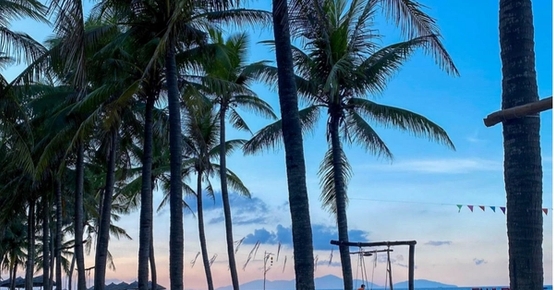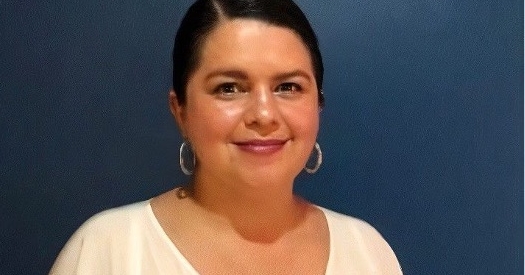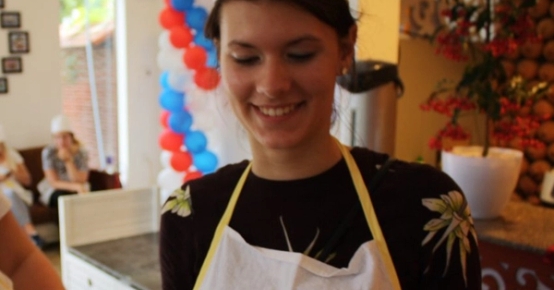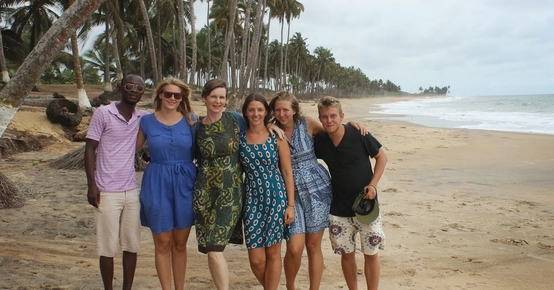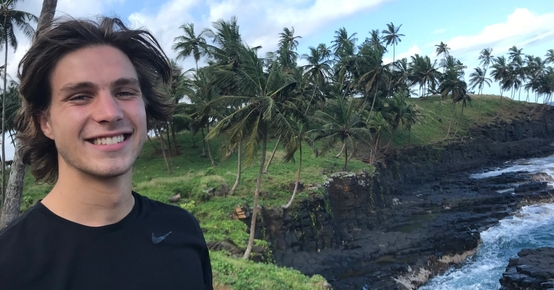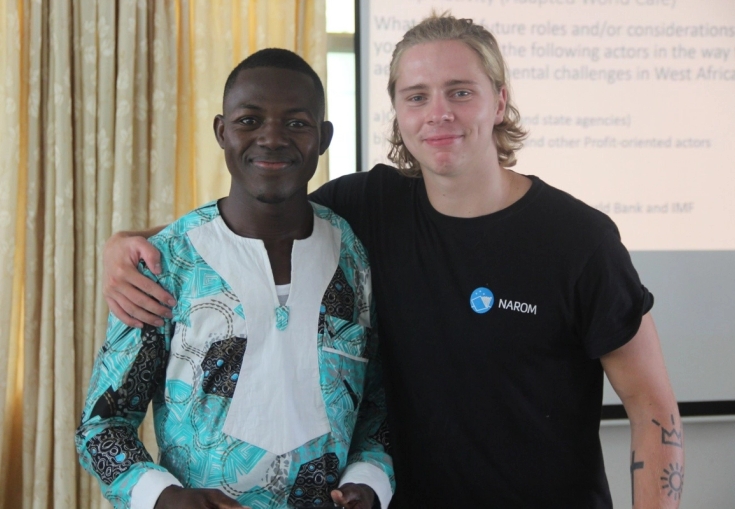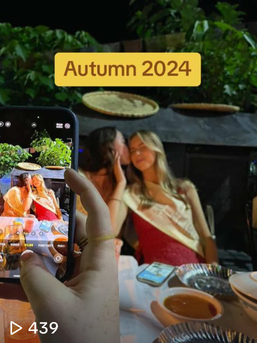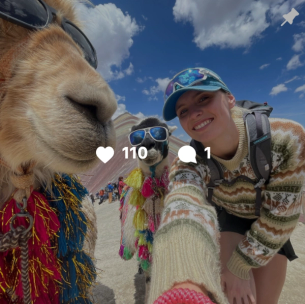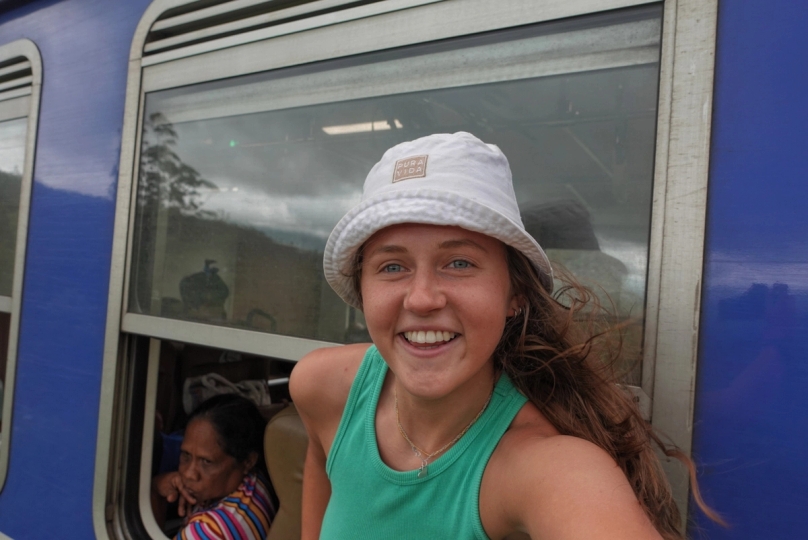
- Ghana
- Vietnam
- Costa Rica
- Nepal and Sri Lanka
- Development Studies 2
- Development Studies 1
- Peace and Conflict Studies
- Spanish in Costa Rica
"After five semesters, I am left with countless memories and experiences"
Nathalie has studied five semesters abroad with Kulturstudier. Now she is completing her around-the-world bachelor's degree in Oslo.

This text is translated using AI.
View the original article here.During her bachelor's degree in Development Studies, Nathalie has lived for two semesters in Costa Rica, one in Nepal, one in Vietnam, and one in Ghana.
Here you can read about her experiences from her study period outside of Europe!
– My first semester with Kulturstudier was in Costa Rica in the fall of 2022. The moment I landed, I knew it was going to be one of the most exciting and interesting experiences of my life – so far!
The town we lived in, San Isidro, is beautifully situated between the jungle and the mountains, and just over an hour from the beach. At first, I thought I would miss the beach, but living as we did was both beautiful and very relaxing!
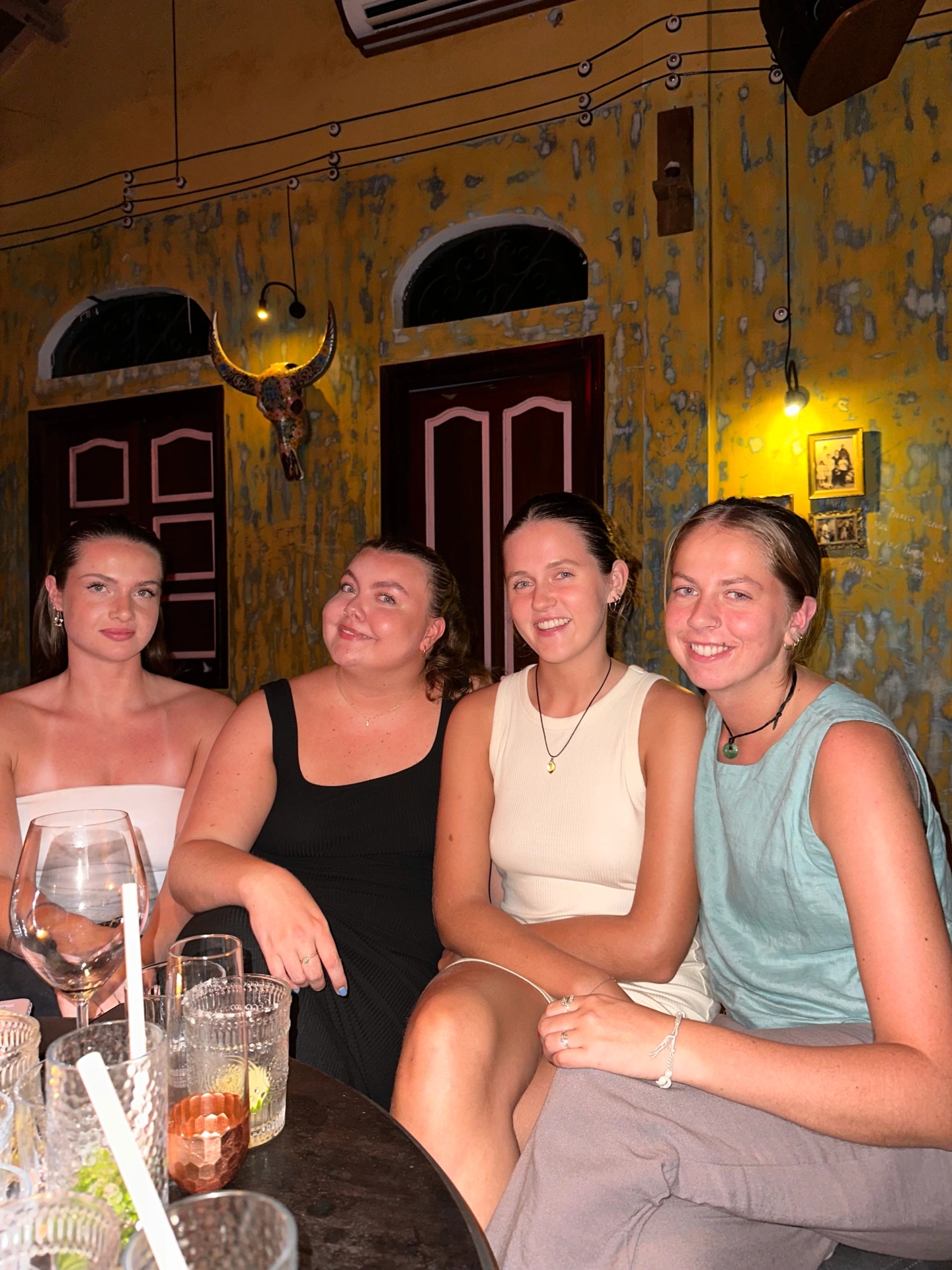
– During my first semester there, I lived in a dormitory with seven others from the program. We had breakfast together, made communal dinners, helped each other with Spanish, went to the nearby river to swim and sunbathe, went out in the city together, had house parties, and went for walks together.
We developed an incredibly nice and safe sense of community, and the social aspect was top-notch.
However, practicing Spanish was somewhat limited at home. That's why I decided to live with a host family for the entire second semester!
Just before Christmas, I moved in with a wonderful family with a mother and abuela (grandmother), and two adult children who came home occasionally.
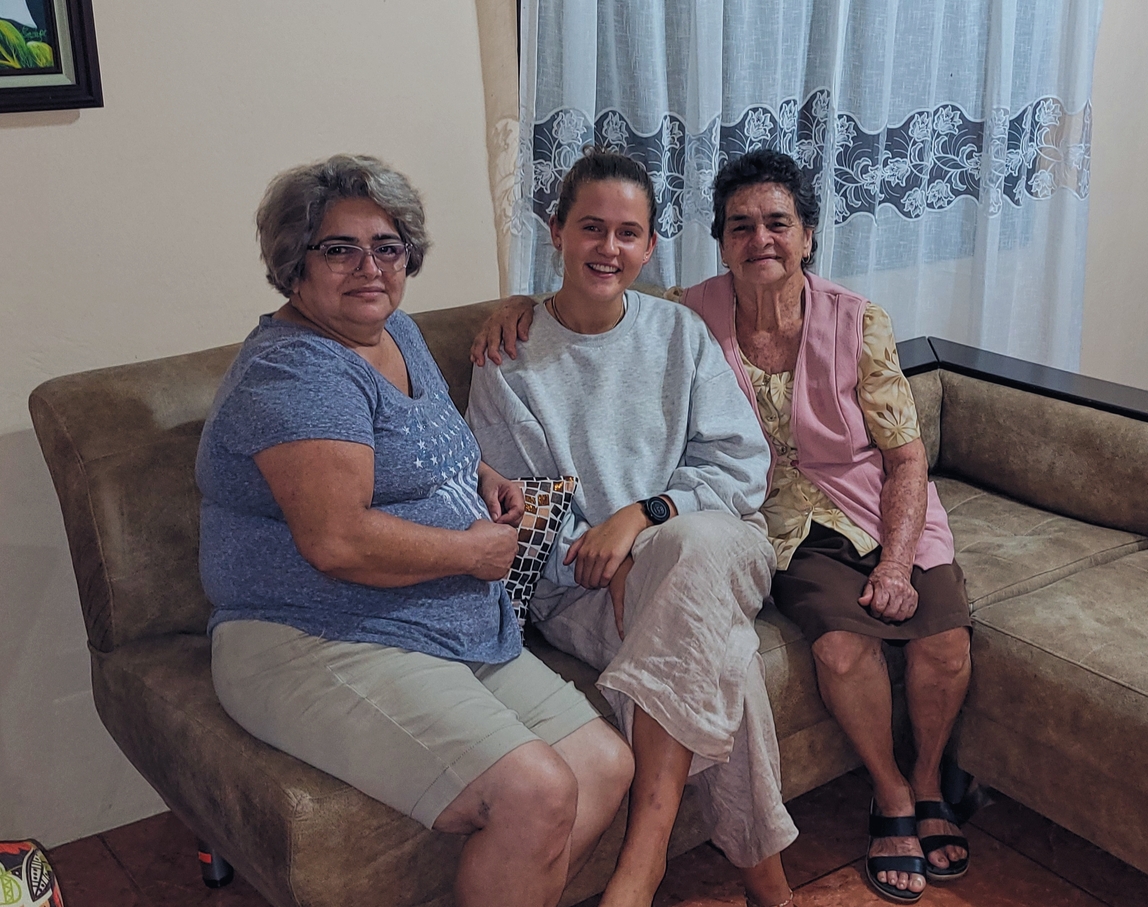
All students of Spanish have a five-week stay with a host family included.
Would you like to stay with a host family for the entire duration? Get in touch with us, and we will assist you!
– I got to celebrate Christmas with them and the family, and took a big part in the Christmas preparations. It felt like we were making food for half the neighborhood – at least it felt that way!
– After Christmas, I went to Nicaragua to celebrate New Year's and to renew my visa for Costa Rica. Visa runs are a fantastic excuse to visit neighboring countries!
One of the nicest things about living with a host family was truly getting an inside look at Costa Rican culture and daily life – food, celebrations, communication, manners, polite expressions, and hospitality.
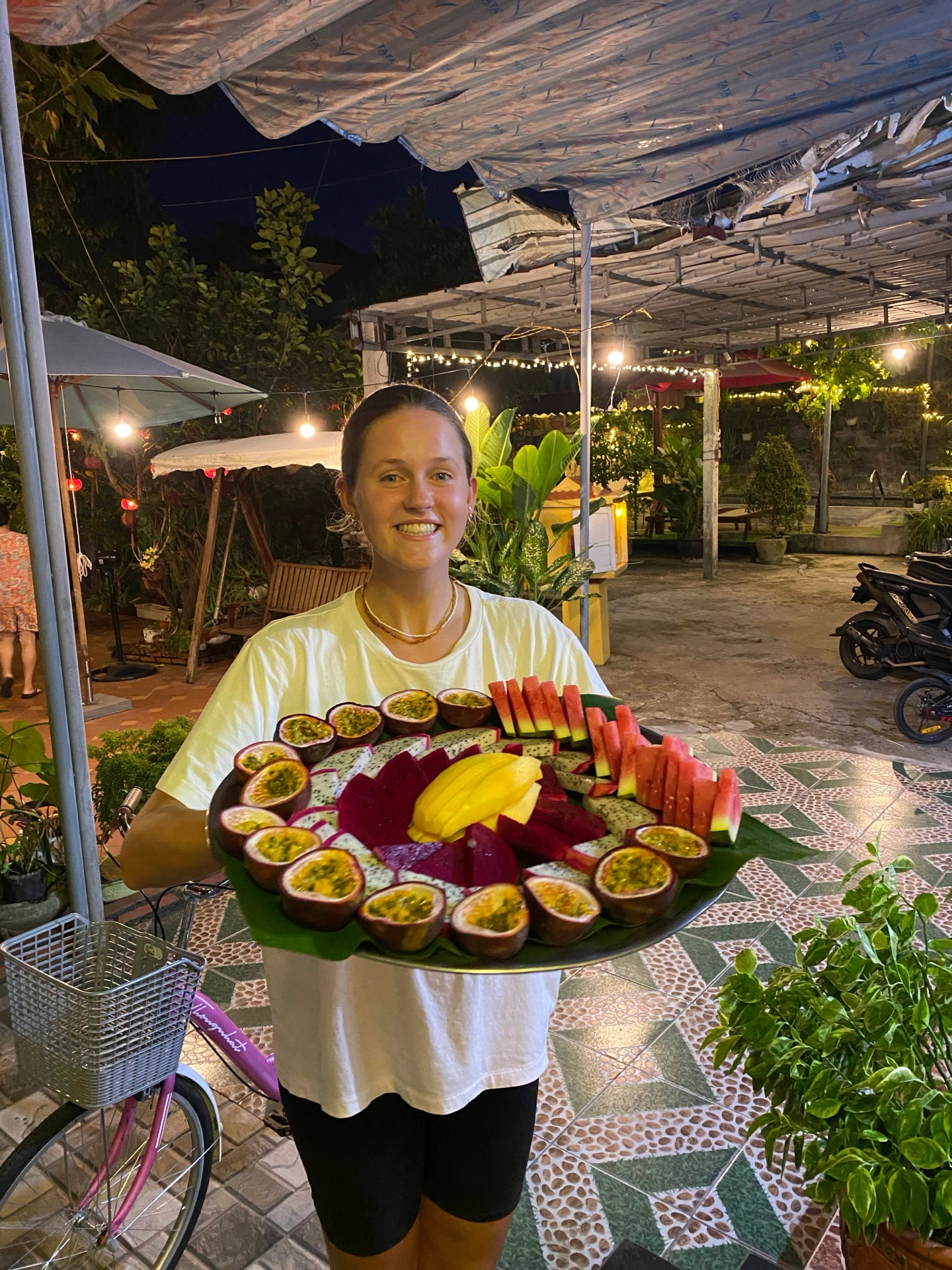
In a host family, you get to participate in everyday life and learn more about Costa Rican culture.
You may be challenged both linguistically and in other ways, and must adapt to local norms and attitudes. One of the highlights is getting to know the Costa Rican cuisine:
– My dear host mother was the boss in the kitchen, and I was only occasionally allowed to actively participate in cooking. However, I was often an observer, conversational partner, and taste judge. And of course, the food was always delicious!
Costa Rican food is really amazing – so much fruit and vegetables.
Everything with plantains (cooking bananas) was devoured eagerly, and Gallo Pinto will forever be a favorite! The Costa Rican version – not the Nicaraguan one. There's a big difference...
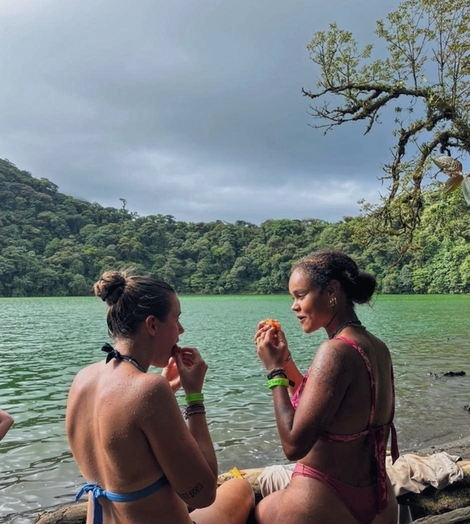
– As time went by with the host family, I noticed that I was increasingly able to use what we learned in the study in conversations around the dinner table and in passing on the way out the door at home.
It was really grand and I felt a sense of daily achievement.
Gradually, I was able to participate more in conversations about politics and society, family and friends, and not least about the importance of being able to communicate with people from cultures other than one's own.
Towards the end of my stay, my host mother used to say that I had now become a part of the Costa Rican people. You'd be hard-pressed to find a greater compliment!
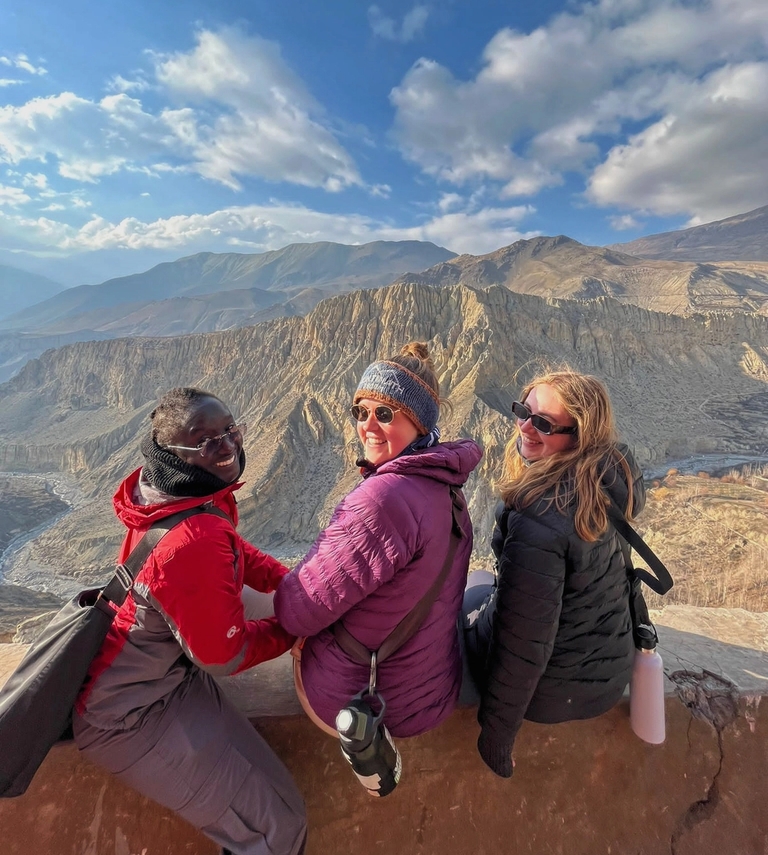
After two semesters in Latin America, Nathalie continued her student life in Asia.
Here, Kulturstudier offers peace and conflict studies in Nepal, and development studies and business economics in Vietnam.
– I spent my third semester abroad in Pokhara. The bus ride there from the capital Kathmandu can take anywhere from six to 11 hours, depending on the weather, traffic, and whether the road is intact or has collapsed in certain parts of the journey.
Check out Nathalie's video from Chitwan National Park in Nepal:
– During this bus ride, I learned the hard way that the food you can buy along the road is not for those with weak stomachs and a poor ability to handle spicy food... We also quickly learned that scooter taxis are both more fun and cheaper than car taxis!
Everyday life in Pokhara consisted of classroom teaching with various professors from different parts of the world who were experts in their fields.
It was very exciting to hear about your thrilling and challenging experiences in a demanding field.
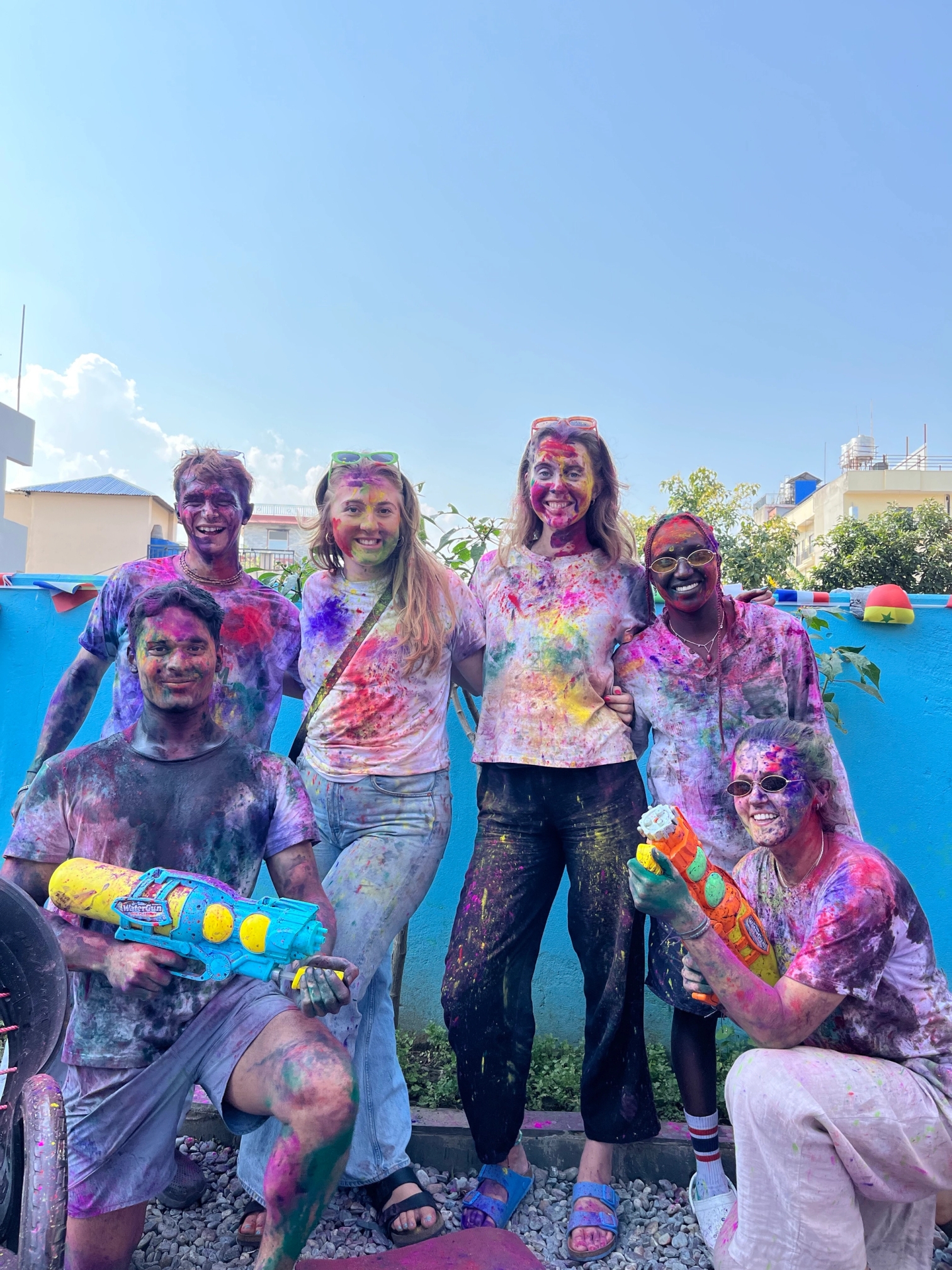
If you're interested in outdoor activities, you should look forward to everyday life in Pokhara.
The city is located at the foot of the Himalayas and offers many opportunities for fantastic hiking, both for those who just want to enjoy the view without much effort, and for those who are looking for a challenge:
– Even though the academic aspect was very engaging, the highlight of the semester was undoubtedly the four-day mountain trek to Mardi Himal, the viewpoint at 4000 meters above sea level!
Here you can watch a video from the Mardi Himal trek on Nathalie's YouTube channel:
– We went without a guide and thought we had done enough research beforehand, but unfortunately, many of us had brought too few clothes and were minimally prepared for how exhausting and draining such a trip would be.
We braved rain, snow, sleet, and sub-zero temperatures. Some also had to overcome altitude sickness with headaches and vomiting. Food and water were expensive. But it was all worth it when we reached the top and enjoyed the view over the Himalayas!
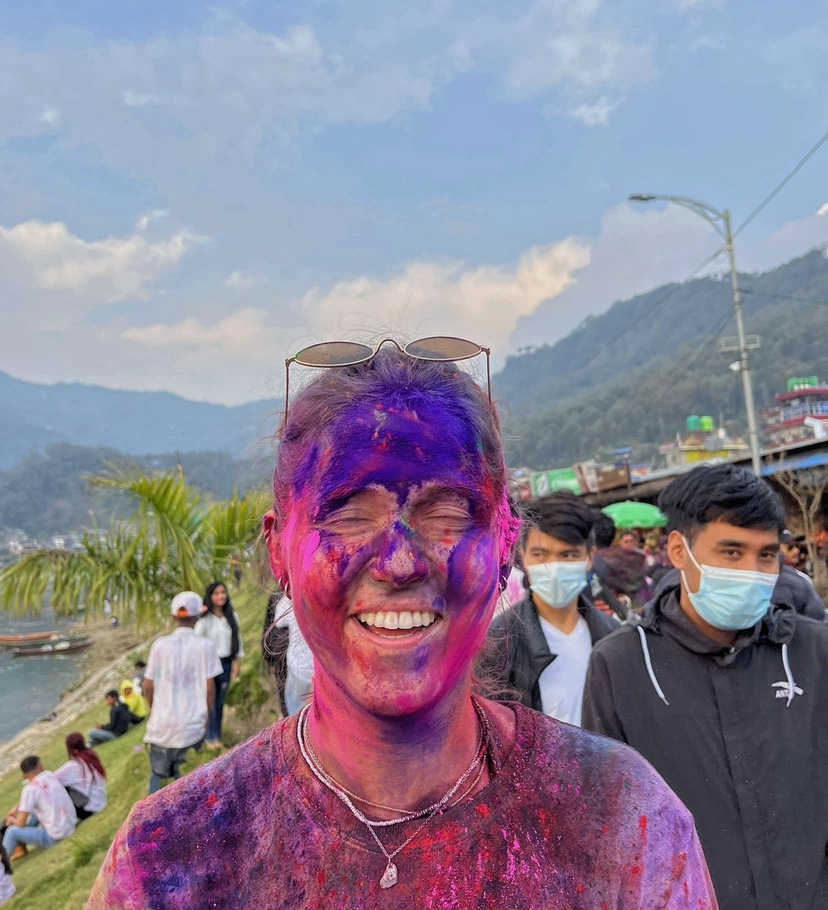
In Vietnam, you can explore the World Heritage city of Hoi An while learning about development issues. The city was once an important trading post and has a long history that you can easily explore on foot or on two wheels:
– On our second day in Hoi An, we all became proud owners of new bicycles, and for the rest of our stay, we cycled wherever we went.
Vietnamese food is incredibly tasty, and we took the opportunity to enjoy it at various restaurants throughout the city every day.
Not once during the ten weeks we lived in Hoi An did I cook dinner myself! It was cheap to eat out, and the food was much better than what I could have made at home.
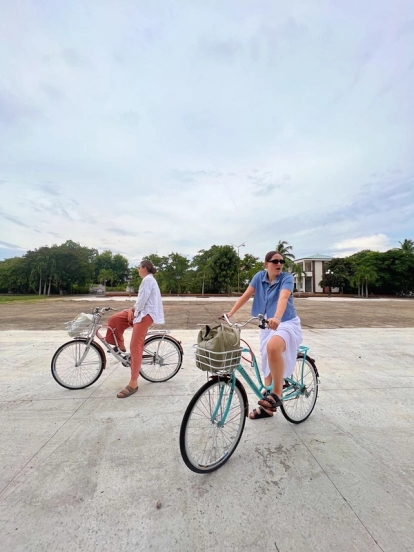
– Most people live in so-called "homestays", where the family that owns the house lives next door.
Our landlord was really hospitable, and we were allowed to participate in many of the family's routines and activities; family dinners, other gatherings, and early morning trips to the city's local market.
Learn more about student housing in Vietnam
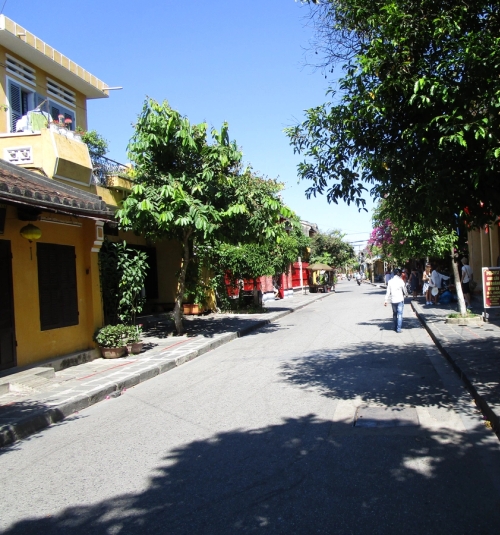
- Vietnam
- Student blog
Studenthusene i Vietnam
– The local contacts at the study were great at organizing social activities and parties, so there was no shortage of things to do and opportunities to experience much of what the area has to offer.
Join Nathalie through a typical day as a Kulturstudier student in Hoi An:
– We had several excursions to villages and organizations; Halloween party, Vietnamese bingo, boat trips, lantern workshops, and much more. Everyday life was really varied and exciting.
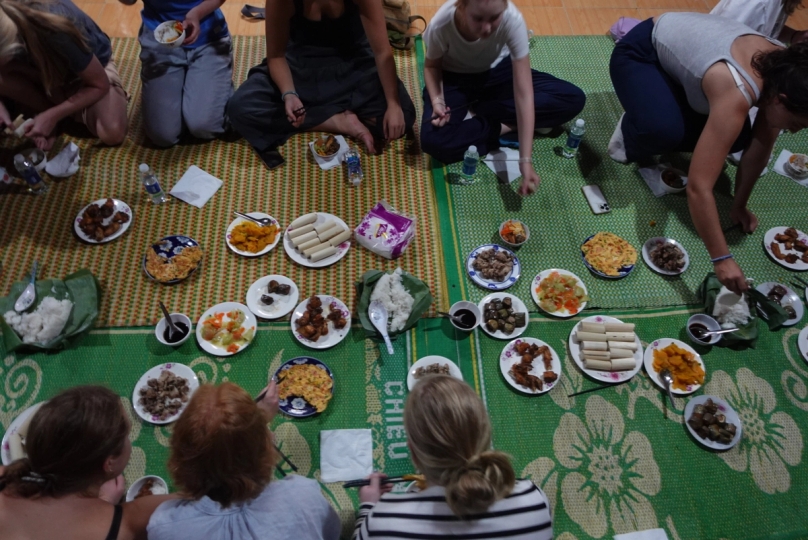
– My last semester abroad was in Ghana, in the beautiful Cape Coast. There we had classroom instruction at the local university and got to experience what everyday student life was like in that country.
Every Tuesday and Thursday we had lunch at a restaurant by the beach – a perfect opportunity to enjoy the beach, sea, and sunbathing!
We went on trips to Busua, a small surf town, to the national park to walk on bridges high above the jungle, and to Accra, the capital, to see the opening ceremony of the African Games.
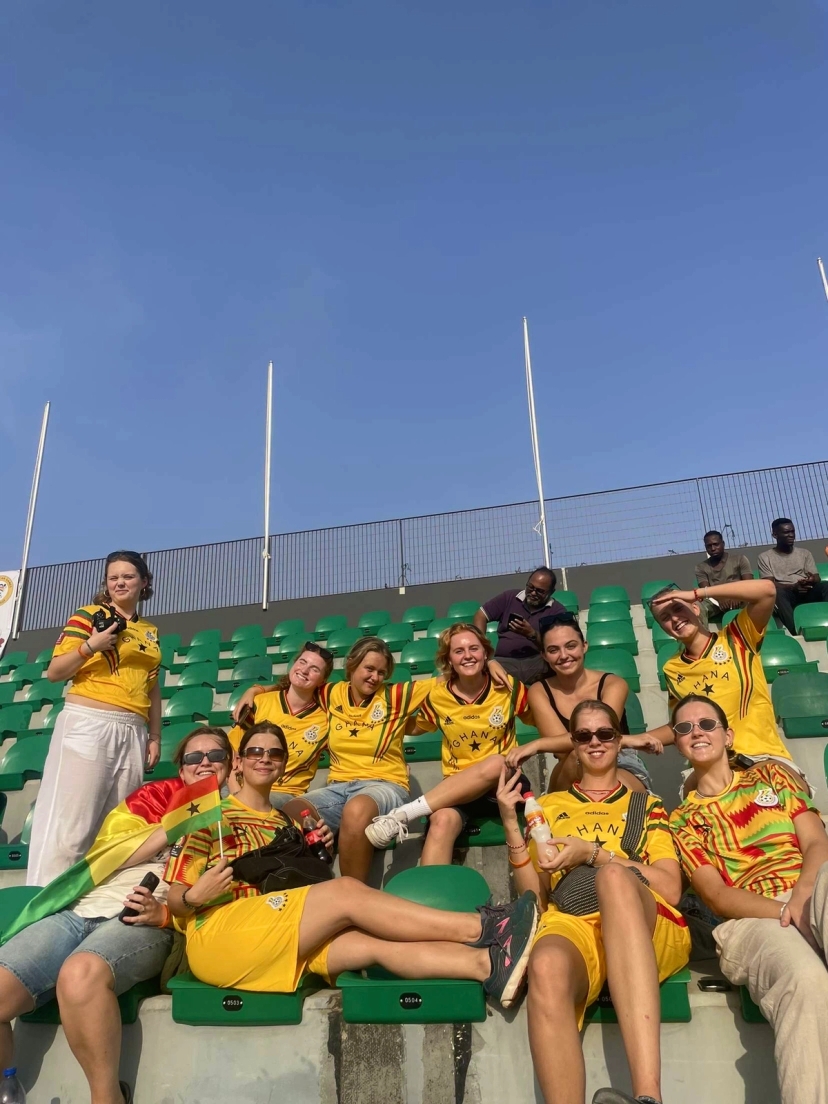
Development studies is a field where practice is as important as theory – getting out into the field and talking to the people affected by the various issues you learn about in the curriculum is a central learning method.
As a student in Ghana, you get a unique opportunity to come into direct contact with local communities and learn from the people you meet, who often lead very different lives than your own:
– The coolest part about studying in Ghana was definitely the weeks spent on fieldwork. Divided into groups of three and four, we spent three weeks in our own small village to conduct research.
My group focused on how education affects poverty and how poverty affects education.
We got close to the local people, and felt welcome. It was incredibly exciting to conduct research on this topic, and, through an interpreter, to speak with people who are dealing with these challenges on a daily basis.
See video from the student life in Cape Coast:
– We spent the mornings and afternoons doing research in the village and the late mornings at our hotel, preferably in the sun with a good book.
The village regularly experienced power outages and cuts in water supply, but it was the same in Cape Coast, and eventually you get used to it!
– Our local guide was very engaged and introduced us to many potential interview participants. We spoke with village leaders, teachers, nurses, vendors, farmers, students, hairdressers, bakers, and taxi drivers.
Toward the end of our stay, we invited those we had become close with for dinner. We served Norwegian tacos – to great excitement!
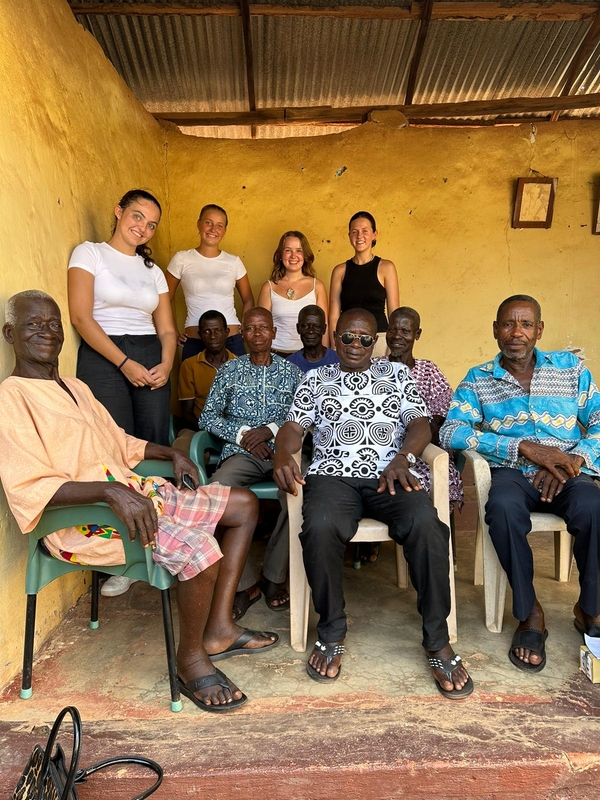
– After five semesters abroad, I am left with countless memories and experiences.
I have met an incredible number of wonderful people who have taught me many important things, people whom I hope to stay in touch with for a long time to come.
It must be mentioned that there have not only been ups.
Unparalleled reality orientation, guilt, homesickness, power outage, uncertainty, water shortage, scooter accident, diarrhea, and hospital visits...
Nevertheless, these years have been completely unprecedented, and I am so grateful!
I have gained insight into the lives and daily routines of people across the globe, and I have developed an understanding of culture, perspectives, ways of thinking, and lifestyles that I would never have acquired if I hadn't pursued the around-the-world bachelor's degree.
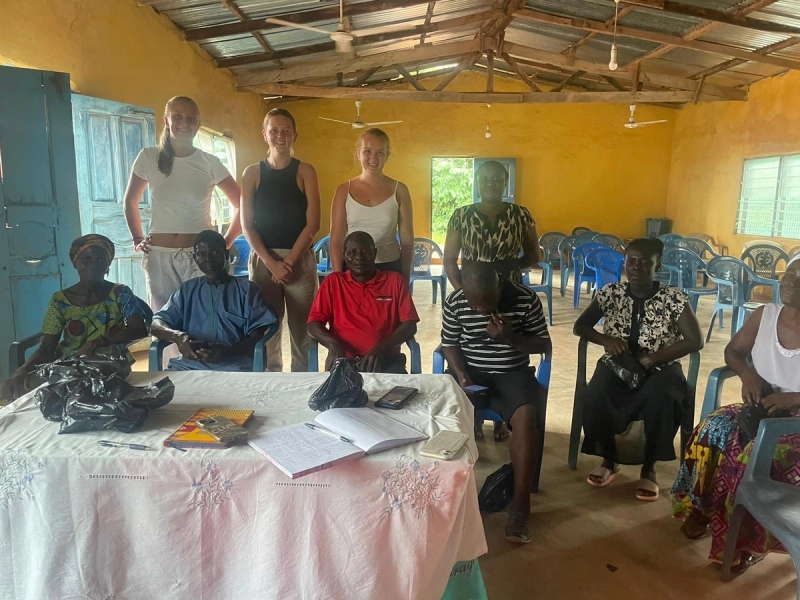
Curious about taking an entire bachelor's degree abroad? Come to an information meeting or participate in a webinar!
Our student ambassadors would love to meet you and tell you more about what you can experience in our amazing study countries.
